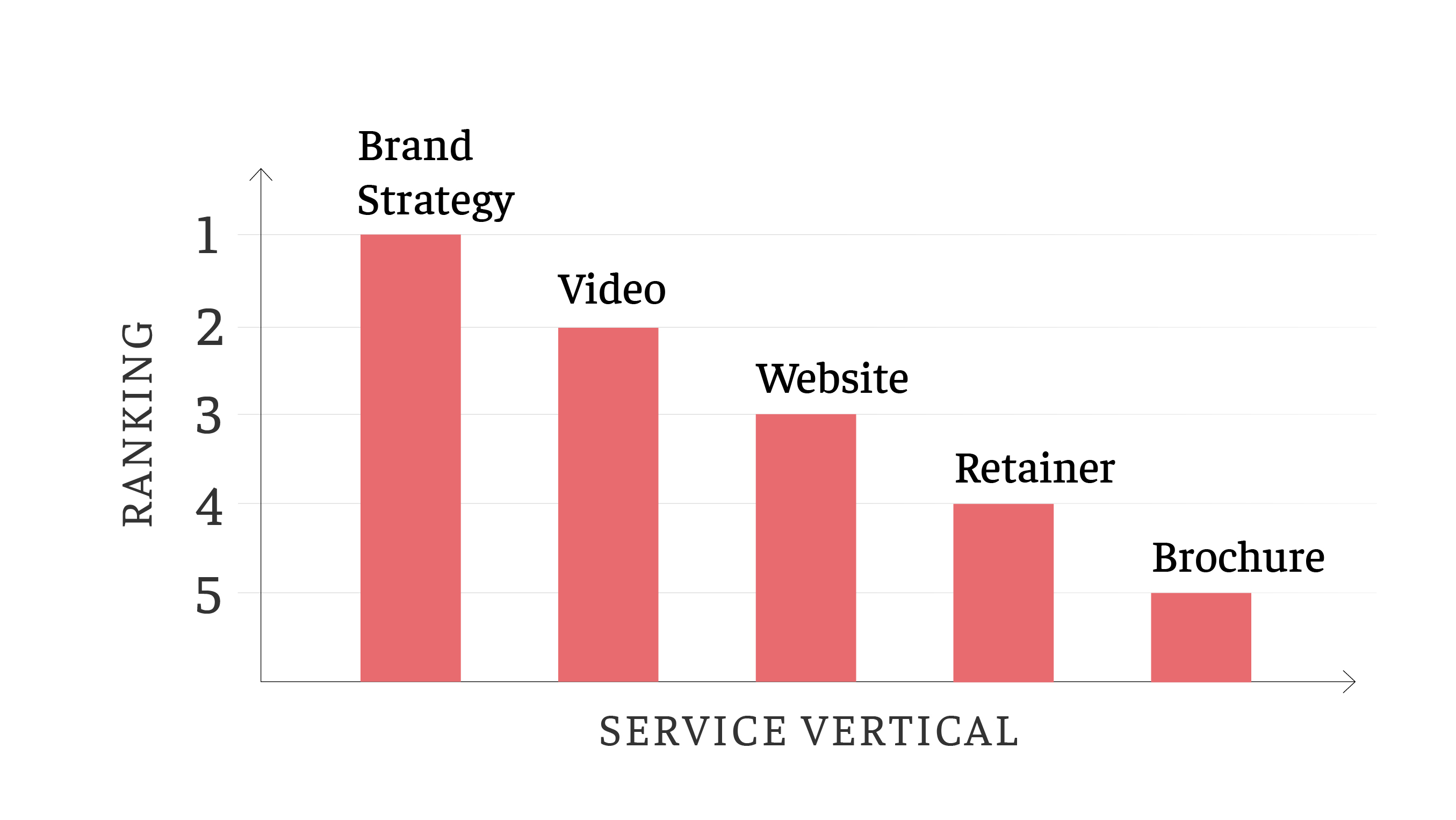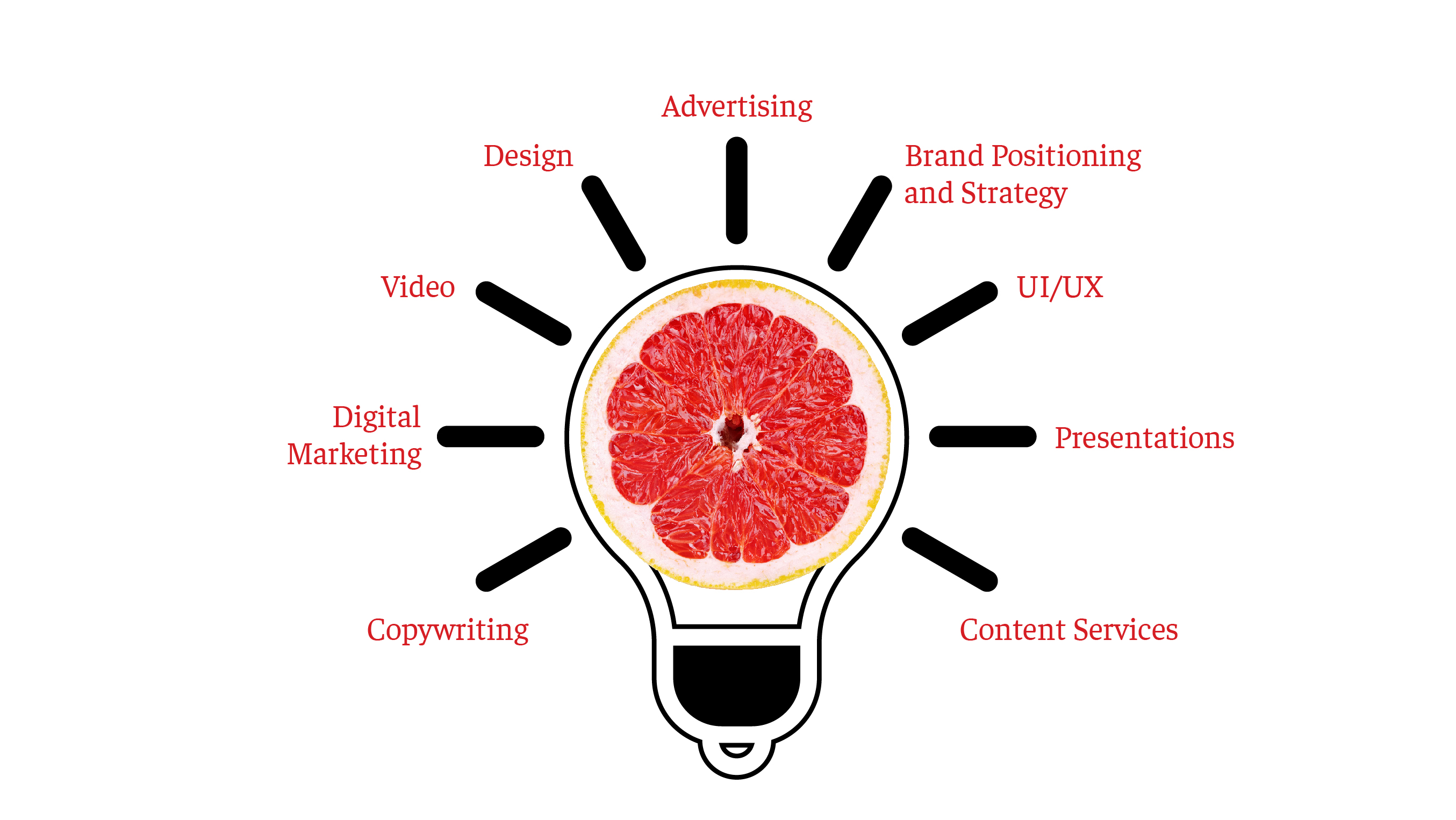
Tina Garg, founder and CEO of Pink Lemonade, an integrated marketing communications firm needs to rethink her strategy as she plans for growth and expansion. According to Garg, “Pink Lemonade was perfectly poised at the intersection between brand strategy and insight-based marketing to serve brands holistically today.” With a vision to go after larger, global clients, she contemplates challenges on various fronts. Inviting two experts, one from academia and one from the industry, we present two insightful commentaries on the way forward for Pink Lemonade.
Case Study:
Tina Garg, founder and CEO of Pink Lemonade, an integrated marketing communications firm, contemplates challenges on various fronts.
Introduction
It was May 2020, a time when the world was still struggling to come to terms with the global pandemic that erupted at the start of the year. For Tina Garg, founder and CEO of Pink Lemonade, an integrated marketing agency based in Bengaluru, India, the disruption provided an opportunity to rethink strategies for her nine-year-old venture and look for avenues to grow the business and scale up operationally. Estimating the impact on business, Garg felt, “15-20% reduction in our revenue was better than the industry average of 30-40%.”
Presiding over a review meeting with her senior leaders, she was looking at the slide that compared average time spent on business against revenue earned across their various activities. It was becoming increasingly apparent that they had to diversify into newer high-growth areas while consolidating and scaling existing business functions.
Garg told her team, “When we get requests from clients for one brochure or one video, we take those projects on as they are the entry points from where we then figure out how to pitch our other offerings.”
The question on the table was, how could Pink Lemonade transition from being a boutique communications agency to becoming a brand partner that consults with the clients on strategic brand marketing decisions, playing a more critical role in their business strategy? This was a journey that the brand had embarked on a couple of years ago.
Pink Lemonade - Inception and Branding
Garg’s career started out with positions held in the advertising, communications, marketing, and journalism space. Keen to break out on her own, she began operating as an independent consultant. At one point, she was managing assignments for seven different organisations which triggered the confidence to bootstrap an entrepreneurial journey.
Around the same time, in 2011, she enrolled for the Goldman Sachs 10,000 Women Programme at the Indian School of Business[1], an initiative that offered training, guidance and mentorship to budding women entrepreneurs. Interactions with the cohort at the programme gave her the confidence to start her own brand, and she set up Pink Lemonade as a formal entity.
Growth and Business Offerings
Garg was funding her business solely with the earnings from her consulting assignments. Her first team comprised two women who were returning to work after a break — a designer who eventually took over as head of design, and a writer who became the head of content.
Garg recalled, “We worked out of an extra apartment I had, across my home. No rent, minimal overheads, three salaries and lots of enthusiasm, talent, and determination!”
The initial business had thrown up several challenges. While work gained momentum, they needed to put together a team to meet their commitments on several projects.
Reflecting on how she approached that hurdle, Garg said, “There was an early realisation that we should look to hire people for their attitude rather than just their talent. We should be creating flexible policies that would have us stand apart from peers in the industry, opening our doors to those looking to resume work after a break, or even making a shift in their career.”
Speaking about her early efforts to get new business, Garg said, “We started by handling smaller brands, and with consistent word-of-mouth from satisfied clients, we created brand visibility for Pink Lemonade.” Garg also realised that propagating on social media and leveraging digital marketing were effective means to build a database of clients.
Undertaking projects from across different domain areas helped to develop capabilities across verticals and build a wider portfolio of services.
Garg built a client servicing team to manage existing and prospective clients. Her personal involvement in mentoring the team in terms of their business acumen, marketing language, delivery, and presentation skills, over time led to establishing the culture and agility that Pink Lemonade is known for.
Garg recalled, “We learned the ropes quickly and began providing web services one year after founding Pink Lemonade. By 2013, video production took off, and we also took over another design firm. In the following year, we started UX services and digital media, as well as brand strategy and planned to consolidate and crystalize these verticals by 2016. Eventually, brand strategy and digital marketing became our most prestigious verticals.”
Over the years, Pink Lemonade pivoted from being a creative agency to an integrated strategic marketing and communications service provider. By 2020, Garg had successfully grown her company to 110 employees, serving close to 800 clients across industries. Over the years, they had worked on some prestigious projects —designing and launching consumer brands for companies like ITC, Toyota, Ajio, Swiggy; extensively covering the United Nations Children’s Fund’s five-year program across 15 states in India; the outreach and communication for the launch of Chandrayaan-2 for the Indian Space Research Organisation, among others. They also had to their credit multiple awards, most recent being the Big Bang Awards[2] and Foxglove[3] for creative excellence in designing. Commenting on their growth, Garg said, “While many have not been able to sustain a size of more than 50-65 people, we have grown to over 100 and have also been able to provide personalised services.”
Despite challenges that come with accelerated growth, Garg had built an organisation in favour of women, where women rose and occupied key positions[4]. Pink Lemonade however, hired only on merit and not gender.
The Need for a New Recipe
As the advertising and digital marketing space evolved, Garg and her team felt the need to get equipped and adapt to newer technologies and platforms. Increasing competition also meant that they needed to be better trained in the nuances of their business verticals at a rapid pace.
Being a mid-sized agency meant that they were compared with both the big and small names in the marketing and advertising space.
Garg felt they were ready to scale up the business to Delhi and Mumbai and gain business traction overseas in the United States. This implied that staffing across the business verticals would need to go up by nearly five times. The challenge was that not all clients understood the pricing and delivery pressures, nor have budgets to deliver successful outcomes.
Going after larger projects was certainly promising but these took longer to close and had fixed and longer payment cycles. Smaller-value projects would end up with a short-term view of business engagements, but these added to the requirements of working capital. Thus, scaling-up operations in a consistent manner across different price points was crucial.
“While many large brands are aware of us and the body of work we have accumulated, we can do more to build further visibility with those brands. We have already been putting a system in place and increasingly matching the hiring profile to meet the evolving needs. The need is to position ourselves as a brand partner and custodian as opposed to being just a vendor. This evolution needed a mindset change, as well as a functional shift within the organisation,” emphasised Garg.
Ingredients for a Successful Transition
According to Garg, “Half the job is done while making the business pitch to the client. Demonstrating solutioning capabilities in the initial stages of the sale would open the door for us to engage strategically for the long term.” Thus, Garg felt further investments in training had to be an ongoing effort to equip her technical and marketing teams.
On the people management front, Garg was keen to develop a second line of leaders who could take Pink Lemonade’s culture and business vision forward. These senior members would allow her to delegate tasks and track employee productivity and contribution. She wanted to deploy formal performance management systems and train leaders on the same.
Pink Lemonade’s unique project management office drove project delivery, in turn improving productivity for the businesses it worked with. Leveraging the power of data and analytics, Garg also wanted to identify and remove redundancies in the processes.
Challenges
Garg nurtured an organisational culture that was fun, energising, safe, and creative, yet committed to deliver. The growth of the venture propelled many careers. Thus far, Garg had been actively involved across each function— driving growth numbers, targeting higher conversion rates, and assessing the business from a strategic eye.
According to Garg, “Pink Lemonade was perfectly poised at the intersection between brand strategy and insight-based marketing to serve brands holistically today. My closely-knit leadership team and I envision the organisation to be a thriving workplace recognised for inspiring conversations through bold creative thought for marketing global brands."
Pursuing this vision, Garg found herself contemplating challenges on various fronts, “Going after larger, global clients would mean risk and efforts spent on some pitches that we don’t win. Some business loss too as we would have to free our bandwidth of working with smaller clients. Also, the investment in shifting to selling this way will not show results immediately as it’s a longer cycle.”
She needed to decide her game plan for pushing Pink Lemonade into the bigger league while ensuring that the pandemic did not derail her endeavours. What could Pink Lemonade do to win the bigger brands? How should Garg grow the team to realise her vision and what kind of skills should the team have?
Questions:
- How could Pink Lemonade leverage their internal resources and capabilities to realize their vision of scaling up?
- What strategic changes could help Pink Lemonade to position themselves as a brand partner to their existing and prospective clients?
Commentary:
The experts bring in their perspective as they respond to the key questions the case poses.
Expert Opinion: Prof. S. Ramakrishna Velamuri, Dean, School of Management, Mahindra University
In less than a decade since she founded Pink Lemonade, Tina Garg has done a number of things very well. First, she understood from a very early stage the importance of human capital in this knowledge driven service business and creatively brought on board employees with the right attitudes (as opposed to focusing on skills alone) and those who were either rejoining the workforce after a break or wanted to make career shifts. In this way, she offered a strong value proposition to these employees, which has presumably led to lower staff costs and better retention rates relative to competitors. Second, she has been frugal and managed costs effectively right from the beginning. Third, she pivoted in time from being a creative agency to an integrated marketing services provider. The emergence and rapid development of new technologies has changed the marketing and communications landscape significantly, such that the creative and technology aspects can no longer exist separately from each other; both need to be integrated in order to provide effective digital marketing solutions to clients. Garg needs to ensure the right balance between creative and technological capabilities, as for historical reasons, Pink Lemonade might be much stronger on the creative side. Finally, she has grown the organisation to more than a hundred employees, no small feat in a services business. The website shows a strong leadership team comprising eleven managers, nine of whom are women. Her ability to bring on board qualified managers and share the leadership duties with them augurs well for the scalability of the business.
In order to grow further, Garg wants to i) expand her geographic footprint to Mumbai and Delhi and internationally; and ii) bring on board larger clients with global footprints. This will require capital infusion to fund the upfront sales and marketing efforts, recruitment of support staff and higher levels of working capital. There are several options available to her:
Partnering with Strategic Investors: Typically, angel investors and venture capitalists do not fund pure services businesses in which growth is a linear function of staff resources. Therefore, Garg will probably have to consider working with a strategic investor who can bring complementary capabilities as well as financial capital to the organisation. Of course, she will have to accept diluting her ownership stake in the business. For example, Anita Verghese founded Golden Star Facilities in 1999 to provide housekeeping services to the IT and ITES companies in Hyderabad and later other cities in southern India. She later expanded her portfolio of offerings to facilities management services. By 2015, she was managing a large workforce of several thousand employees and had a number of marquee customers such as Oracle, IBM and many others. Faced with similar challenges to what Garg is facing in Pink Lemonade, she brought on board Manipal Integrated Services, which became the majority shareholder in 2015. By bringing in a strategic partner, Garg can ensure Pink Lemonade’s growth and future sustainability.
“Productize” some Service Offerings: By packaging some of her most demanded services as products rather than pure services, Garg can scale her business faster. For example, a consultancy firm in Europe developed a “Quick Diagnostic” tool, which was built around the rigorous application of a management framework, and trained all its consultants on applying it to companies. For a fee as low as US$10,000 and a time period as short as two weeks, a consultant with five years’ experience and an analyst could provide a diagnosis of the challenges facing an organisation and the broad areas it should focus on to resolve them. For the consulting company, the “Quick Diagnostic” tool was not meant to be a money maker; rather, it was meant to open doors. The sales cycle was very short, as client companies could easily commit US$10,000 for the diagnosis. Several of the companies that hired the consultancy firm for the quick diagnosis continued their engagement for higher value services. Garg could think about developing packaged products for SMEs, which are more likely to require standardised digital marketing interventions. These products should be i) easy to explain, ii) competitively priced, and iii) deliverable by relatively junior staff with minimal supervision, for which the delivery has to be highly process driven. The large customers with global footprints will require highly customised solutions, and Garg herself and her senior leadership team can focus on understanding and satisfying these needs.
Profit Sharing Model: It is not clear if the senior leadership team at Pink Lemonade are paid a fixed market-based compensation plus performance-related bonus or if they are on a profit sharing model (with low fixed salaries and generous share of profits). If they are on the former model, then Garg could mitigate her cash flow problems by moving them to a profit-sharing model. This way her fixed overhead per month would come down she would be able to free up resources to invest in expansion. This move will also unleash entrepreneurial energy in the organisation. She can look to partnership models in professional service firms – consulting firms, law firms, etc. – as templates to design her compensation structure.
In summary, Garg should be commended for having built up Pink Lemonade into a formidable player in the digital marketing and brand management space. She is in a sector that will grow by leaps and bounds as more and more organisations, large and small, undergo digital transformation. If she plays her cards carefully, the future is very bright for Pink Lemonade.
Expert Opinion: Chandana Agarwal, President, North, 82Point5 Communications, Ogilvy Group
Over the years, Pink Lemonade, has worked with big and small names across industries. It has garnered a portfolio of nearly 800 clients. This is huge by any standard. Connections with these many clients can be key to opportunities and growth. Firstly, I would look at updating that. It would be useful to know how many of them they can do repeat business with. Where have the clients moved to? Can they open doors for the agency where they are? An ABC analysis of the clients would help. They could be segregated on the basis of business potential, ability to buy good work and a ‘big’ name. The growth strategy needs to come from ‘hunting on the farm’ rather than hunting or farming.
By looking for strategic business engagements and opportunities for cross-selling, the existing client base can be leveraged to create a funnel of prospective leads. Fundamentally, this will allow Pink Lemonade to assess their client portfolio’s revenue potential, support costs, sales revenue and contribution margins. The key leadership team should be given a target of ‘share of wallet’ of the client. If we are currently getting 5-10% of a client’s spend, can we start getting 15%? This will also help in building depth of relationship with key clients.
Further, they need to find a way to have senior level conversations with the clients - present and past. An annual agency evaluation may help to create collaborative synergies - just 15 mins with people who matter would help to understand what the agency can do better and would give an OTS (opportunity-to-see) with key clients.
If the purpose of doing time-consuming, lower revenue jobs is to be able to do more substantial work, it would help to know how many cases of doing upstream work does Pink Lemonade have? It needs to be evaluated whether such jobs have a long-term business generating potential or do they further underline the position of the agency as a ‘vendor’. To move out of this, Pink Lemonade should be able to demonstrate their ability to deliver integrated solutions across their business verticals. This would help increase the average ticket size.
Currently the energies of the agency seem to be spread across their varied service portfolio. The agency seems to be focussed on width (number of clients), number of services, number of people, etc. It is now time to focus on depth of relationships with clients.
Being an advertising person myself, if I was to look at Pink Lemonade as a challenger brand, I would start by evaluating and applying the ‘Eight Credos of Challenger Brands’ that Adam Morgan described in his book, Eating the Big Fish - How Challenger Brands compete with the Market Leader. These eight credos are unique principles that can help challenger brands compete with established market leaders.
1. Intelligent Naivety
2. Build a Lighthouse Identity
3. Thought Leadership of the Category
4. Create Symbols of Re-evaluation
5. Sacrifice
6. Over Commit
7. Enter Social Culture
8. Be Idea-centric, not Consumer-centric
Pink Lemonade needs to break from its immediate past and work on its positioning. Why should the clients call it for a pitch? Their current challenge of being compared to large and small agencies will be resolved if they were to have a calling card. They need to build a ‘Light House’ identity as described by Morgan, wherein they would need to have a strong, visible point of view or message that makes them stand apart. From what one has seen of their hiring policy, hypothetically one space could be that ‘Pink Lemonade understands Indian women and their needs better’. This could be reflected in their hiring, in their work, in the papers that they put out.
As a collaborative initiative, they could utilise their experience and intellectual capital and work with a few brands as well as academicians to embark on a study of Indian women and what their needs, expectations and challenges are. This new identity would give them ground to actively engage in personal PR. They could stage a relaunch for themselves with their client base to unveil the study and present key findings. They would come across as people who are authentic and subject matter experts. This would also position them to talk to a large set of brands – from FMCG, jewellery to cars and real estate. Women, after all, are the key purchasers or influencers for most categories.
A strong positioning would help answer why the clients should call them for a pitch – because they will be able to bring a women’s perspective better than anyone else. This could be reflected in everything they do, design from a woman’s perspective, videos, humour, storytelling. Working with women directors and producers. In fact, big MNC players are moving towards equal representation. A recent news article[1*] said, “P&G commits to achieve equal representation of female directors behind the camera for its ads in India over the next three years.”
Finally, an agency reputation is built on the work it has done and the talent it attracts. They would actively need to create what Morgan calls ‘symbols of re-evaluation’ by attracting ‘brand’ names or building their own ‘people’ brands who are visible in the right forums, who are in the jury, who are amongst the ‘influential women in media’. They should also look at winning in the ‘Effies’ if they want to be seen as a strategic partner. They should invest in case studies of growing with the clients, because brands are built over time not by doing ‘projects.
A vision statement that says, ‘inspiring conversations through bold creative thought for marketing global brands’ is ambitious.
To achieve it, the three principles I would focus on are:
Breaking from their immediate past: Don’t think like a mid-sized agency doing a bit of everything.
Create a light house identity: Pink Lemonade understands Indian women and their stated and subliminal desires, dreams, ambitions, fears, and behaviours better than anyone else in the world.
Create symbols of re-evaluation: Create case studies, awards and people brands that espouse the new identity.

Professor S. Ramakrishna Velamuri
Professor Ramakrishna Velamuri is the Dean, School of Management, Mahindra University, Hyderabad. He was formerly Chengwei Ventures Professor of Entrepreneurship at the China Europe International Business School in Shanghai.

Chandana Agarwal
Chandana Agarwal is President, North with 82Point5 Communications, part of the Ogilvy Group and has over two decades of experience in brand communications and strategy. Recognised as an ‘Accomplished Woman’ by WEF, she is a mentor for upcoming women leaders and writes actively on women and their journey in the corporate world.





